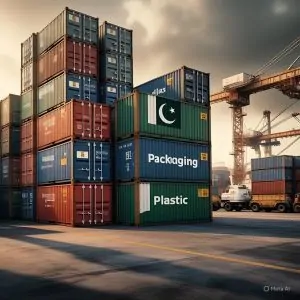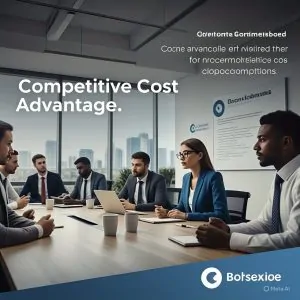+92 336 0875171

Raw materials and labor costs in Pakistan remain lower than in major markets like the EU and North America.
This enables Pakistani exporters to offer attractive pricing without compromising quality.
Regions like Africa, Southeast Asia, and the Middle East are experiencing growth in FMCG, cosmetics, and pharmaceuticals—all of which require plastic packaging.
Pakistani producers can build regional partnerships, starting with duty-free and next-tier deals.
Pakistani manufacturers are expanding beyond basic containers into:
Flip-top caps
Airless bottles
Customized jars and pharma-grade packaging
This enables them to cater to niche and high-value segments across international markets.
Pakistan benefits from trade preferences like GSP+ in the EU and preferential tariff schemes in Middle Eastern countries.
Add to this the export rebates and export finance support from the Government, and exporters stay price-competitive.

Export markets often have strict standards (FDA, EU food-grade, REACH, ISO).
Pakistani businesses need certified materials, laboratory testing, and labeling compliance.
Exporters must navigate lead time delays, container shortages, and ocean freight volatility.
Minor production errors can lead to shipment holds and increased costs.
Some importers steer clear of Pakistani suppliers due to historical quality concerns.
Achieving consistent QC (Quality Control) and obtaining international certifications (ISO, HACCP) is crucial for trust-building.
Exchange rate volatility, payment delays, and the lack of international trade credit insurance can impact profitability.
Building trusted banking relationships and using escrow services are critical risk mitigators.
Secure ISO 9001 or ISO 22000 (food-grade) certifications.
Use lab testing for raw materials and packaging integrity.
Maintain transparency with quality reports and inspections.
Partner with reputable freight forwarders and logistics firms.
Develop backup sourcing options for raw materials and alternate production facilities.
Factor in lead-time buffers and communicate them clearly with buyers.
Offer value-added features: eco-friendly materials, custom labeling, tamper-proof caps.
Highlight innovative solutions and consumer-safe products backed by research and testing.
Use Letter of Credit (LC) or Advance Payment terms when dealing with new or large buyers.
Explore export credit guarantees and FX hedging options.
| Region | Packaging Demand Indicators |
|---|---|
| Middle East | Booming FMCG and cosmetics sectors; halal certification important |
| Africa | Fast-growing market, emphasis on low-cost but quality packaging |
| Southeast Asia | Strong growth in pharmaceuticals and personal care |
| EU & North America | Niche market opportunities—premium, pharma-grade, sustainable |
Strategic targeting of these regions can unlock new export channels for exporting plastic packaging Pakistan.
Noor Enterprises, based in Karachi, offers:
Export-ready plastic bottles, jars, and caps
Compliance with EU/US-LFDA standards, ISO processes, and packaging testing labs
A dedicated export team helping with documentation, incoterms, shipment planning, and customs clearance
Aiming to grow export business through a culture of excellence
If you’re grinding towards building brand presence abroad, consider reaching out to Noor Enterprises for assembling customized export-grade packaging solutions.
Exporting plastic packaging from Pakistan offers great profit potential—but success depends on attention to quality, compliance, finance, and strategic partnerships.
By increasing process transparency, investing in certification, and aligning your offering with global trends—Pakistani exporters can break into new markets with confidence and scale sustainably.